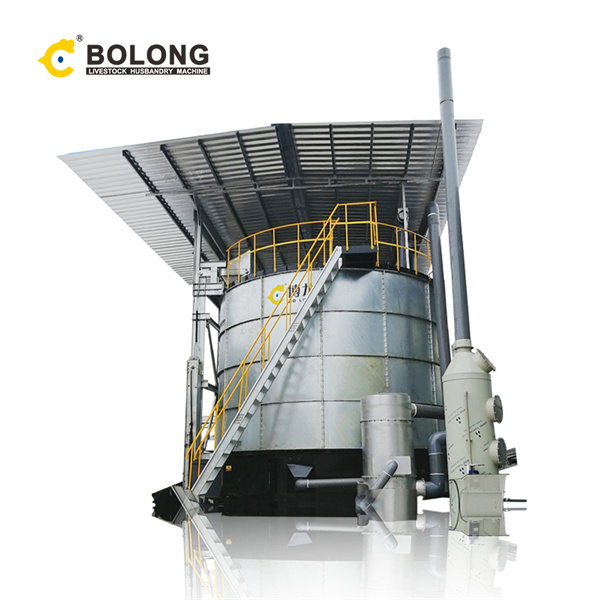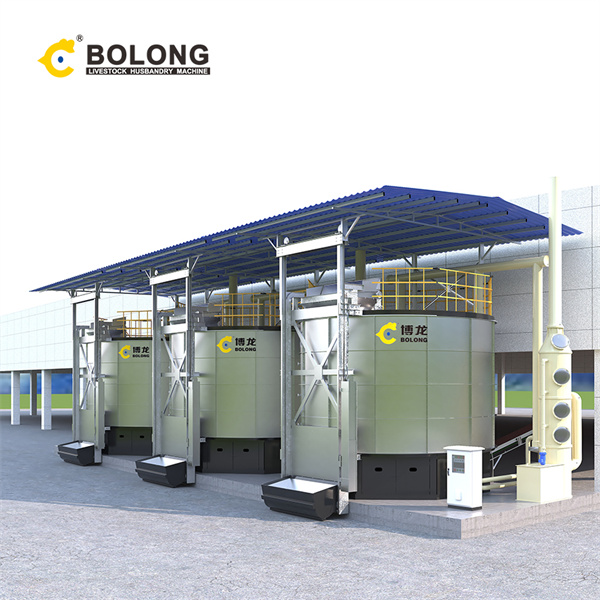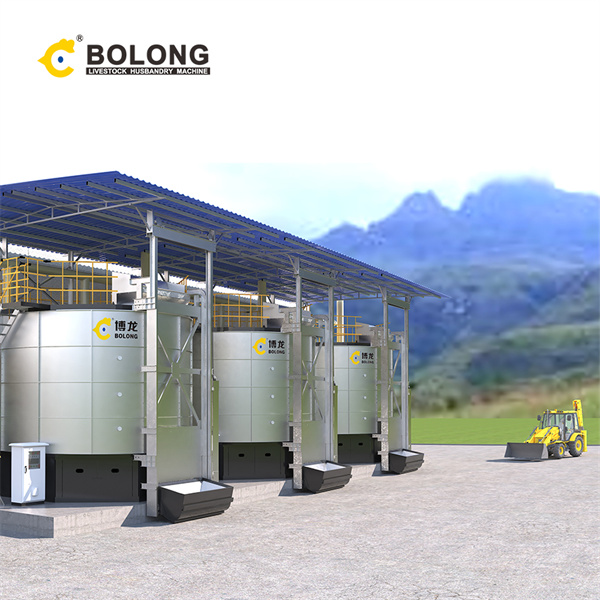In the wave of global agriculture pursuing green and sustainable development, organic fertilizer composting machine, as the core equipment of organic fertilizer production, is injecting strong impetus into the development of organic agriculture with its unique advantages, opening a new chapter in agricultural production.
1. Composting machine achieves efficient use of energy
① Waste heat recovery and reuse
Modern organic fertilizer composting machines focus on efficient use of energy, among which waste heat recovery technology is a highlight. During the fermentation process, microorganisms decompose organic matter to release a lot of heat. Traditional fermentation methods often allow this heat to dissipate, while new composting machines are equipped with efficient waste heat recovery devices. The waste heat generated by fermentation is collected through a heat exchanger and used to preheat raw materials or heat surrounding facilities. For example, in the cold winter, the waste heat recovered by the composting machine can be used to heat the greenhouse, creating a suitable environment for the growth of crops, which not only reduces additional energy consumption, but also improves the comprehensive utilization rate of energy.
② Explore energy self-sufficiency
Some advanced organic fertilizer composting machines have begun to try energy self-sufficiency. The biogas generated during the fermentation process is converted into electrical energy through biogas power generation equipment to provide power support for the operation of the composting machine itself. At the same time, the remaining biogas can also be purified and used as clean energy for surrounding farmers. This energy self-sufficient model not only reduces dependence on external energy, but also reduces carbon emissions, achieving a win-win situation of economic and environmental benefits.

2. Composting machines integrate modern agricultural models
① Linked development with smart agriculture
With the rise of smart agriculture, organic fertilizer composting machines are also actively integrated into it. Through the Internet of Things technology, the composting machine is connected to various sensors in the farmland. According to the fertility of the soil, the growth stage of crops and meteorological data, the production parameters of the composting machine are accurately adjusted to produce organic fertilizers that best suit the needs of crops. For example, when the soil detects a lack of nitrogen, the composting machine can adjust the fermentation process in a targeted manner to produce organic fertilizers with high nitrogen content, achieve precise fertilization, and improve fertilizer utilization.
② Assist in the construction of a circular agricultural system
In the circular agricultural system, organic fertilizer composting machines play a key role as a link. It converts agricultural waste, such as straw and livestock and poultry manure, into high-quality organic fertilizer, which is then applied to farmland to promote crop growth. New waste generated after crop harvest can enter the composting machine again to form a complete agricultural cycle. This circulation model reduces waste emissions, reduces agricultural production costs, and promotes the sustainable development of agriculture.

3. Composting machines promote market promotion and education popularization
① Adopt diversified promotion strategies
In order to allow more agricultural practitioners to understand and use organic fertilizer composting machines, it is necessary to adopt diversified promotion strategies. On the one hand, by holding agricultural technology exhibitions, on-site demonstrations and other activities, the working process and production effects of the composting machine are intuitively displayed, allowing users to experience its advantages firsthand. On the other hand, using the Internet platform, detailed product introductions, success stories and other content are published to expand the popularity and influence of the product.
② Strengthen knowledge popularization and training
It is crucial to strengthen the popularization and training of knowledge related to organic fertilizer composting machines. For farmers and agricultural enterprises, professional training courses are carried out to explain the operation methods, maintenance points and organic fertilizer usage skills of composting machines. Through training, users’ operating skills and management levels are improved to ensure that the composting machine can perform at its best.

Organic fertilizer composting machines are becoming an indispensable key force in the development of organic agriculture due to their innovation and development in energy utilization, integration with modern agricultural models, and market promotion. With the continuous advancement of technology and the in-depth promotion of its application, it will play a more important role in the sustainable development of agriculture in the future.